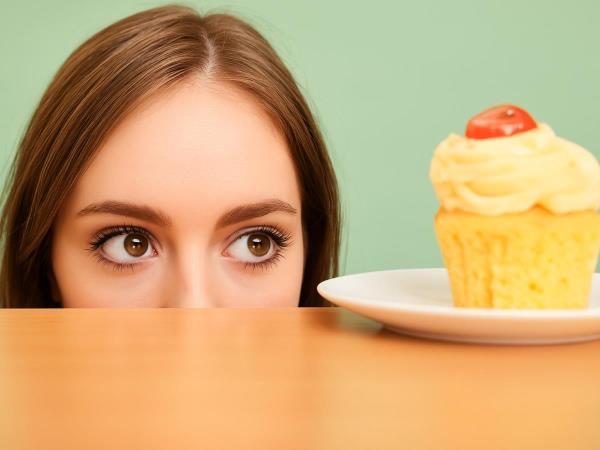Low blood sugar: when the body runs out of “batteries” at night
When blood sugar (glucose—this is the main fuel for the brain) drops too low, the body reacts much like your phone flashing a red light: it quickly looks for energy! This energy comes most easily from sugar. Experts at Cleveland hospital say that a low glucose level below 70 mg/dL is a warning sign. For some, symptoms only start at 55 mg/dL ...
What does this really feel like?
- sudden hunger
- shaking
- slight panic
- sweating
- weakness and dizziness
- strange sensation around the lips or tongue.
How can you help yourself at home?
- 1 tablespoon of honey (a natural source of quick energy)
- a piece of apple or banana
- warm tea with a spoonful of homemade honey
Honey contains more than 180 active substances, including antioxidants and natural sugars, which lift the body more evenly than store-bought candies.
Interesting fact: a 2021 study showed that people who consume a small source of protein before sleep (e.g., yogurt) have 30% less glucose fluctuation during sleep.
The brain quickly gets used to a morning reward
Many people are not even aware of this. If we start every day with a croissant, juice, or sugary cereal, the brain develops a pattern: morning = sweet. And that's not good. Scientists call this the dopamine syndrome (dopamine = the reward hormone, released by the brain with sugar, praise, or a hug). According to a 2022 study, people who consume processed sugars daily raise the amount needed for satisfaction by 10–15% in two weeks. As if the brain says: yesterday one square of chocolate was enough, today I want three.
How to avoid letting morning sweetness become a habit?
- start the day with warm water and lemon (an old folk reset trick)
- include fiber-rich vegetables during the day
- choose eggs or oatmeal with walnuts instead of croissants
Old wisdom says: if you build a strong morning, your day won’t fall into a sweet pit. Remember that!
Not enough food: when the body runs on empty at night
If you skip dinner or eat too little, you may wake up empty. And then the brain chooses the shortest route: sugar. The body knows that sugar raises energy quicker than vegetables or proteins. Research from Harvard University (2023) showed that people who go to sleep with an empty stomach sleep restlessly, wake up more often, and report 29% more cravings for sweets. That’s why nutritionists recommend:
- before bed, eat a spoonful of walnuts or almonds
- before bed, eat Greek yogurt with honey
- before bed, have a carrot or cucumber with a spoonful of homemade hummus
Our grandmothers often said: you should go to sleep satisfied, not overeaten.
Stress: sugar to soothe the nerves
When we're under stress, cortisol rises in the body (that’s the hormone that prepares you to fight or flee). Cortisol convinces the brain it urgently needs energy! And sugar is always the first thought ...
In a 2020 study in the Journal of Health Psychology, people under stress chose sweet foods 46% more often than those who weren’t stressed. In 2025, we still see this trend ... Evidence for this can be seen in the morning lines outside bakeries ...
Folk remedies for stress relief are very simple:
- lemon balm or chamomile infusion
- petting a domestic animal (reduces stress by 20% within just 10 minutes)
- 5 slow breaths before getting out of bed
Old healers believed: whoever breathes calmly, is not ruled by sugar.
Too little sleep: tiredness seeks sugar
If you sleep less than 7 hours, according to research in Nature Communications (2022), cravings for sweets can rise by up to 40%. The brain chooses foods that quickly boost energy. The body thinks: if I can’t rest, I’ll eat. Further, poor sleep upsets the hormones leptin and ghrelin (leptin tells us when we’re full, ghrelin triggers hunger). When we sleep too little, ghrelin increases, leptin drops, and the craving for sweets explodes.
Before bed, it’s worth trying one of these home remedies:
- hops or lavender tea one hour before sleep
- turn off screens at least 60 minutes before bed
- make your bedroom as dark as a cellar (because of melatonin)
In rural areas, they often said: calm yourself in the evening like a forest so you don’t search for sugar in the morning like a bear. That’s why it’s good to know the herbs and foods that help overcome morning sweet cravings:
- cinnamon (regulates blood sugar—confirmed in 12 studies)
- ginger (stimulates digestion and reduces sweet cravings)
- vinegar—1 tablespoon of apple cider vinegar before sleep reduces glucose variation by 29%
- flax seeds (fiber + omega 3, controls hunger)
- warm drink with lemon or ginger
- three deep breaths before getting out of bed
- a tablespoon of walnuts or almonds
... only then breakfast. Of course, you must also pay attention to warning signs so you know how and when to react. Watch out for these symptoms, especially if they persist for more than 3 consecutive days:
- strong shaking
- night sweats
- feelings of fear or confusion
... then it is right to check your glucose level with a doctor.
Finally ... Don’t worry. It’s just a signal from the body that something is out of balance.









 Would you like to be informed about news on the website?
Would you like to be informed about news on the website?

